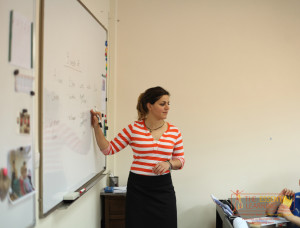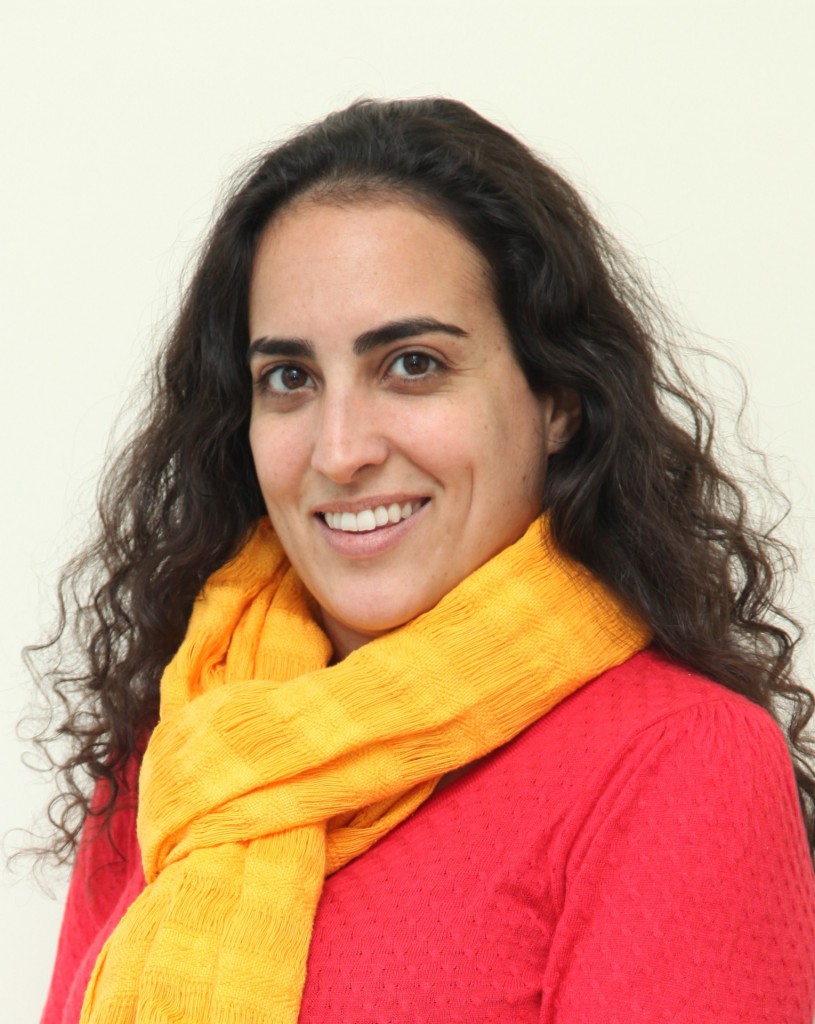By Jeanine Buzali, Marketing Director
ELG Speech Therapist Reyhaneh Rajabzadeh Leads Effort to Create Opportunities for Early-Career Speech Pathologists
One thing that makes ELG’s people special is their commitment to contributing to their field, in addition to helping children and families. Speech therapist Reyhaneh Rajabzadeh, for example, is chairing the Ad Hoc Committee on the Next Generation within the American Speech and Hearing Association (ASHA) . We recently asked her for her thoughts on why the committee can be beneficial to the field of Speech Pathology and the newcomers within it.
Tell us about the Ad Hoc New Generation committee within ASHA.
Our main goal and our charge is to put forward recommendations to ASHA on how to better serve the Early Career Professionals (ECP’s) that have been in the field for 5 years or less. Recommendations include how to engage ECPs with the association, how ASHA can support them as professionals,and how to support them so that they can go on to become future leaders.
How did you become involved in this committee?
I got an email from ASHA to say that I had been nominated as the Chair, and then the Board decided based on that nomination. The Committee is made up of five ECPs, 2 ASHA staff, and 2 of ASHA’s past presidents. We began our work together in May and primarily do our work via teleconferencing and online discussion boards, as we are all spread out across the world.
Why did you want to get involved in something like this? Why do you think it’s important?
I think it’s important to be involved in your profession’s association if, as a professional, you want to see the field grow; I’m a firm believer in “being a part of the change”. I also think it’s important to give back to the profession you’re involved in. ASHA’s committees are predominantly made up of volunteers meaning everything we do is driven by the desire to give back to the field and help it grow.
What do you hope this will bring to the field of Speech Language Pathology?
I think this field is changing dramatically, and I think the Early Career Professionals want to explore non-traditional paths that have not been commonly explored. One characteristic of the new generation is that they want to be more innovative, and spread themselves out more globally. They want to use technology more, and they want to do things in ways that haven’t been done before. So there’s all this creativity and innovation around, and I think it would be brilliant if these minds were also taking part in leadership. It’s also about changing the face of the field: changing the materials that are used, the number of opportunities available, and promoting growth.
Why do you think newcomers to the SLP field will benefit from either involvement with or outcomes from this committee?
It’s often overwhelming for recently-graduated professionals to enter the SLP community. There is so much information and so many people; it’s a huge community of thousands of speech therapists and audiologists. There is a misconception that to get involved, you have to be a really seasoned professional. The committee is focusing on giving more tailored attention to the ECP’s by making resources available to them that are specifically for them, including how to get involved and how to take on leadership roles, and also how to access ASHA’s resources. I also hope to create ways for ECP’s to connect with more seasoned professionals in the field who can provide guidance and mentorship. Lastly, I want to give ECP’s a voice within ASHA so that their opinion and their experience can be heard throughout the SLP network. At the moment, ASHA doesn’t hear the opinions and input from the ECP’s because it’s a group that we haven’t directly tapped into yet.
What do you think are some of the changes that have altered the nature of the SLP field in recent years?
Telepractice – long distance therapy using video conferencing – is now becoming a big thing in the field, and is something that is coming hand in hand with this new generation of therapists who can work remotely and have the means of communication to do it. Interest in international work has also grown significantly.
As a member of the ELG team, how important do you think it is for prospective Speech Language pathologists to gain experience internationally?
I think it’s an invaluable experience. I think any non-traditional experience can really expand your outlook and foster growth. For example, what do you do when you’re not in a place with a plethora of resources? That’s something we don’t have luxury of, being out here in China – you have a network and a community but it’s significantly smaller than back home. So what do you do when you are trying to provide services, in a cultural and/or geographical setting where your profession is underrepresented, and how can you help families from all backgrounds and effectively practice cultural competency ? Out here in Shanghai, you end up working with families from all over Asia, Africa, North/South America, Europe and you always have to remember that each person is coming in with such a unique linguistic and cultural background. All these things keep you on your toes and keep you committed to finding answers for yourself, and advocating for yourself.
What opportunities have you been able to access in China that you wouldn’t have otherwise?
Well for one, working at ELG, I’ve been able to work with many families that have culturally and linguistically diverse backgrounds; their children can sometimes speak 4 or 5 different languages. In the U.S we get to see bilingual children,but this kind of multilingual profile is rare. I’ve also been able to take part in development work by hosting workshops and training sessions for the community. It’s important to provide therapeutic services to an undeserved area while also working on sustainability!
What have been some of your favorite moments whilst working at the ELG?
I love being part of an interdisciplinary team. Our team is made up of occupational therapists, physical therapists, art therapists, behavioral therapists, psychologists and more, and we are constantly discussing each case with each other. This holistic approach really allows us to see the bigger picture, and meanwhile, we learn so much about each other’s profession. Also, just the fact that I’m working in China is an opportunity in itself! Every place you go and all the things you see is an opportunity to learn about the country, the culture, the society and that’s another reason why I’m here.
How has your work within ELG helped to develop and expand your insight within your field?
Working with ELG in China has allowed me to see and experience firsthand how limited services really are for individuals with special need, internationally. This has also helped me see the need for a global SLP community, one that i think we can reach through ASHA. Here in China, even though we only have a small network, it’s one that i think we can expand by connecting with other international speech therapy organizations that are there – as well as organizations from other disciplines. There are communities out there but we don’t have them all interconnected – a goal that i think is definitely feasible with the cooperation of ASHA members. An international SLP community that supports each other, is represented by ASHA and can represent ASHA wherever they go is something that i think would be an amazing service to the community, and working at ELG has definitely helped me to realize the need for this type of global network.
Jeanine Buzali
Marketing Director
Jeanine came to Shanghai in 2011, and has previously worked in Mexico City and Mumbai. She uses her community-building experience to implement outreach projects and parternships, in order to bring awareness of our services to any child and family who might need them.


